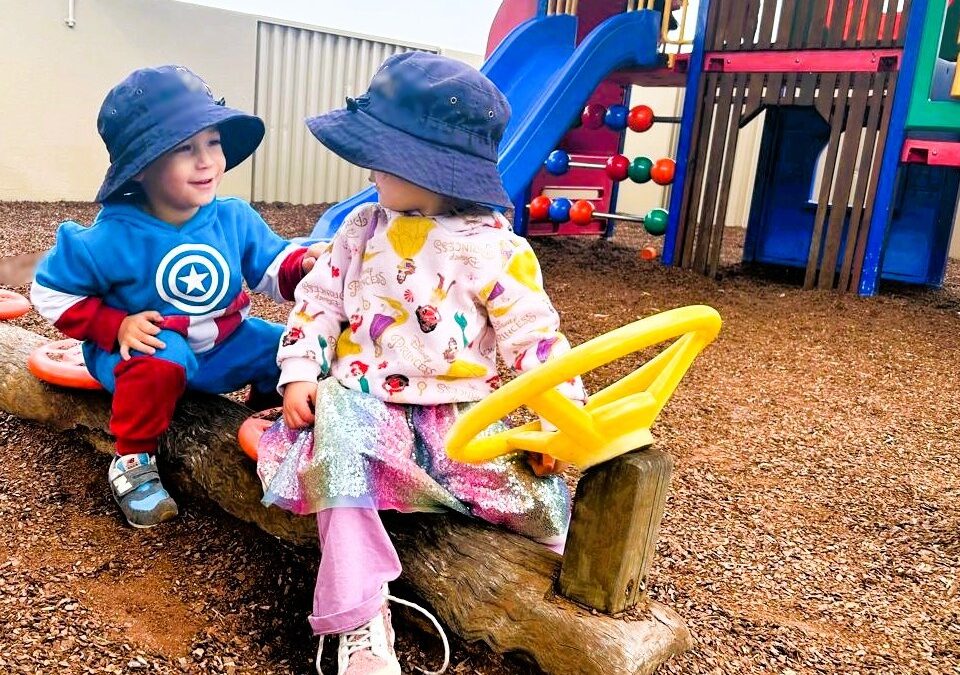How to navigate exclusion in the playground
At our centre, we recently had a situation where two children excluded a little boy from play. He approached them and asked, “Can I play with you?” The other children said, “No”. We observed this encounter and found that the boy was reacting angrily to the children who hadn’t been kind in the way they stopped him from playing with them. So, this situation in the playground led us to have an Emotional Intelligence session, or what we call an “EQ session”, with the pre-prep children on how to navigate exclusion in the playground as it’s a tricky social situation.
At Enrich Early Education, we have a four-step process to help children say “no” when someone asks to play with them. This process can also be applied to other situations where your child wants to say no. These are the steps:
Step 1: It’s okay to say no
The question is, is it okay for a child to tell someone that they don’t want to play with them? Well, the short answer is yes, absolutely. Simply because we need to think about potential risks. If we teach a child that they must let other children play with them every single time, what we’re teaching them is firstly to ignore their feelings of discomfort.
It also teaches them that they must play with someone even when they don’t want to. This comes with the risk of them becoming people pleasers or being taken advantage of later in life. Therefore, we believe forcing a child to play with another child does not lead to healthy outcomes for them or for their relationships. That’s why we at Enrich Early Education teach children that it’s okay to say no when other children ask to join in on the play.
Step 2: Teaching a child how to say ‘no’ kindly
It hurts to be rejected or excluded from play. As humans, we’re social creatures, and exclusion feels painful. We need to make children aware that being excluded is hurtful and ensure we are gentle and kind in how we say no.
This specific scenario took place in our pre-prep classroom. In our EQ session, we invited the children to do a role play and asked them to think about ways to say no in a kind and gentle way. The children came up with amazing answers like “No, thank you”, “No, not right now, but maybe we can play together later?” and ” I’m sorry, but I just want to play with Lilly or Joseph right now”. We believe these are all great ways to kindly say no.
Step 3: Consider if playing together could be a possibility.
We do ask the children to consider whether playing together is possible. If it is a game or activity that can be opened up to others, we would love the children to consider playing together since we find it important that the children consider other people’s feelings and say yes if they can. This teaches the children to consider not only their own feelings but also their friends’ feelings and then make the decision that feels best to them.
Step 4: Helping children manage their feelings when being excluded
The last step is to help children manage their feelings if they are being excluded from play. We discussed why sometimes friends want to play together, and if they say no to you, they’re not trying to hurt you, they’re just trying to play together.
We asked the children to think about what else they could do when they were excluded from playing together. The children said, “I can go play by myself, or I can play with my other friends.” And we said, “Yes, great strategies!”
This approach helps the children build resilience and learn not to take it personally when being excluded. This is an important life skill because being excluded or rejected often occurs in a child’s (and later, an adult’s) life. From being told no thank you when asking a girl or boy out on a date to missing out on a job role, there are plenty of times when we humans experience rejection.
This EQ approach helps children navigate exclusion in the playground
This EQ approach to being excluded in the playground will provide the children with skills to navigate social situations in which they’re excluded, setting them up for success and well-being in life.
You can download the 4 step process below:

